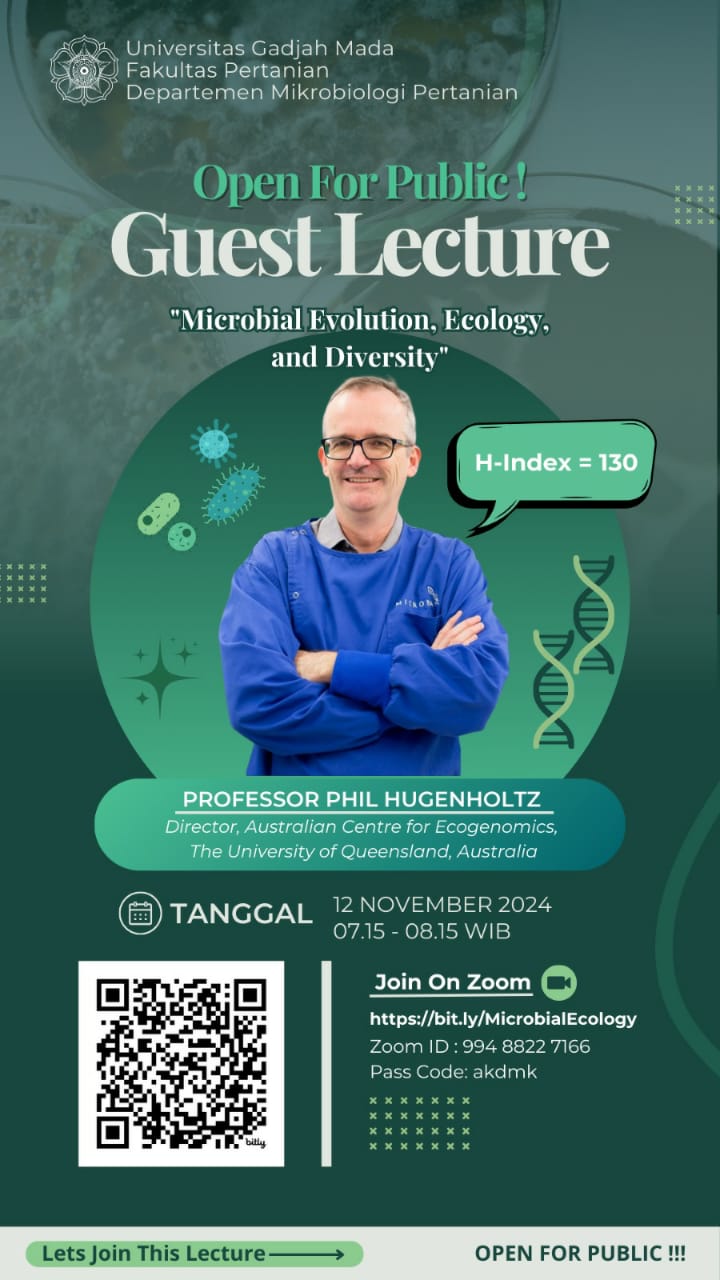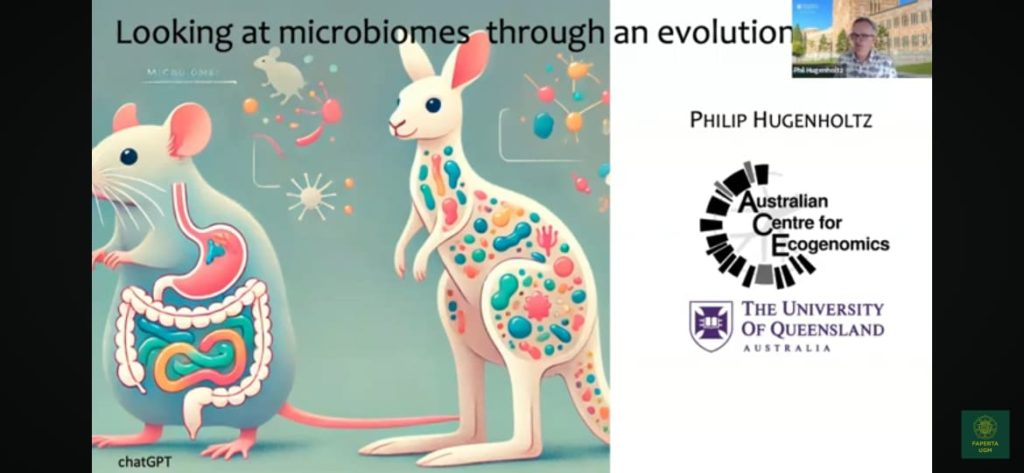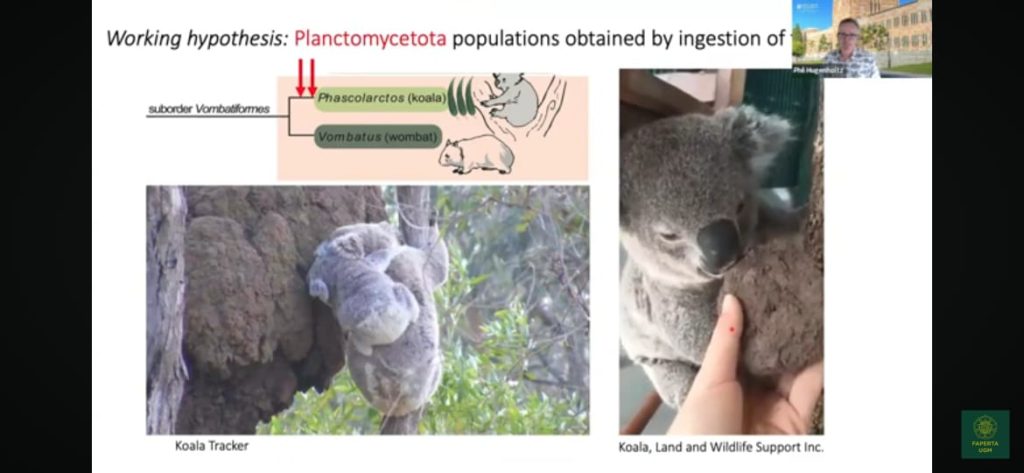
The Faculty of Agriculture at Universitas Gadjah Mada (Faperta UGM), through the Department of Agricultural Microbiology, once again held a Guest Lecture titled “Microbial Evolution, Ecology, and Diversity” on Tuesday, 12 November 2024 via Zoom Meeting. The session featured Prof. Phil Hugenholtz, Director of the Australian Centre for Ecogenomics (ACE) and Professor at The University of Queensland, Australia.
The guest lecture was opened with welcoming remarks by Prof. Ir. Irfan Dwidya Prijambada, M.Eng., Ph.D., a lecturer in the Agricultural Microbiology Study Program at the Faculty of Agriculture UGM.

“Thank you very much, Prof. Philip Hugenholtz, for accepting our invitation to deliver this lecture. Starting this year, Evolution has become a compulsory course for our Agricultural Microbiology students. We hope this marks the beginning of a long-term collaboration, both in academics and research. I wish this guest lecture runs smoothly and proves beneficial to our students,” said Prof. Irfan.

Prof. Hugenholtz discussed the interconnectedness of microbial evolution, ecology, and diversity by presenting examples from the gut microbiomes of mice and koalas. He introduced S24-7, a group of bacteria within the phylum Bacteroidota, commonly found in the guts of warm-blooded animals. These bacteria, also known as Muribaculaceae, are abundantly present in the gut microbiome of laboratory mice, comprising up to 10–15%. Interestingly, their population is significantly higher in lab mice than in their wild counterparts. Domestication was shown to reduce microbiome diversity and weaken the immune systems of the domesticated mice.
Additionally, Prof. Hugenholtz explored microbes from the Planctomycetota group found in koalas. These microbes lack the typical characteristics of Planctomycete bacteria, such as peptidoglycan, budding reproduction, and intracellular compartments. Their eukaryotic-like features are believed to be products of evolutionary processes. Ecologically, these microbes are predicted to be motile, oxygen-tolerant anaerobes with cold resistance. Their presence in the koala microbiome is thought to be linked to the animals’ behavior of consuming termite nests.
The lecture offered fresh insights into how animal gut microbiomes evolve and adapt to their environments, emphasizing the importance of understanding microbial interactions in ecological and evolutionary contexts. As a note of inspiration, Prof. Hugenholtz encouraged students to pursue research aligned with their interests and passions.
“It’s an honor for me to have this opportunity. My message to students is: if you have the passion, there’s always a way to do the research you love. You just need to be in a good research institution, follow your interests and passion, and find a mentor who shares those interests. You can do it—even reach an H-index of 130,” said Prof. Hugenholtz.
Through this guest lecture, the Faculty of Agriculture UGM hopes to continue promoting international collaboration and strengthening the field of agricultural microbiology, in line with its vision of becoming a center of excellence in sustainable agricultural research and education. This effort also supports the achievement of several Sustainable Development Goals (SDGs), including SDG 1: No Poverty, SDG 2: Zero Hunger, SDG 3: Good Health and Well-being, SDG 4: Quality Education, and SDG 17: Partnerships for the Goals.
Writer: Agrit Kirana Bunda
Editor: Desi Utami
Photo: Media Faperta UGM
